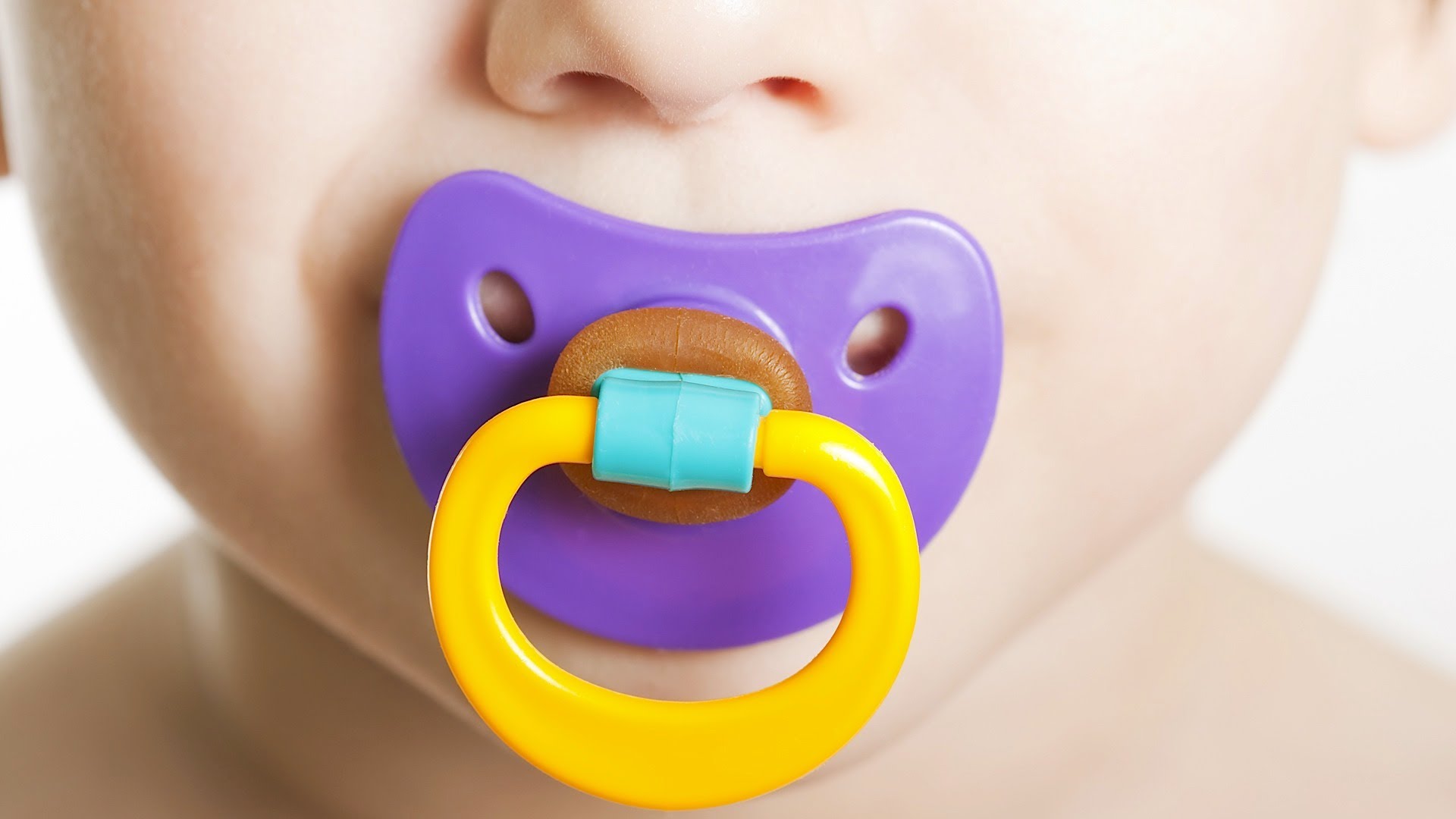Are you concerned that your child’s development is being negatively affected by their beloved pacifier? The good news is, you are not alone, according to LaPrairie, Goldacker et al., an estimated 75-85 percent of children in Western countries have used a pacifier. Chances are, you have heard mixed reviews regarding this controversial matter. To set the facts straight, recent studies have provided a comprehensive review of existing data regarding the correlation between pacifier sucking and development. Below is a summary of this information, including the noteworthy advantages and disadvantages that pacifier sucking may have on your infant’s development.
Benefits:
1. Development and Calming
One notable benefit to pacifier usage is its positive contribution to development and calming. All babies are born with the “sucking” reflex; a natural biological instinct to suck. This reflex is vital, as it gives rise to later behaviours such as breast and bottle feeding, essential behaviours for a healthy baby. It is suggested that pacifier sucking should therefore be encouraged as it is a reflexive method for an infant to calm down and gain control when they are upset. According to Nelson, pacifier sucking is an effective way to soothe an infant through key developmental challenges such as separation from a parent.
2. Helps Preterm Infants
Research has illustrated that pacifier usage can have remarkable benefits for preterm infants. For many preterm infants, the sucking reflex is not fully developed by birth, and thus, infants’ ability to suck may be below that of the average full term infant. LaPrairie, Goldacker et al., posit that pacifiers can help stimulate the sucking reflex by habituating infants with the ability to coordinate the processes of sucking, swallowing and breathing. Additionally, studies have demonstrated that preterm infants who used pacifiers show an increased rate of weight gain compared to preterm infants who did not use pacifiers.
3. Sudden Infant Death Syndrome
According to LaPrairie, Goldacker et al., pacifier usage may lessen the risk of sudden infant death syndrome (SIDS), the sudden, unexplained death of infants less than one year of age. Studies have revealed that pacifiers may play a vital role in the prevention of SIDS, in fact, according to Nelson, regular pacifier usage is associated with a 30% reduction in the risk of SIDS. One suggested cause of SIDS is a blockage to the airway. It is suggested that pacifiers may help to prevent this from occurring by keeping the infants tongue from falling back into the pharynx. Pacifiers may also help to prevent the infant from spitting up, another suggested cause of SIDS.
Risks
1. Breastfeeding
One of the greatest concerns related to pacifier usage is its impact on proper breastfeeding. Studies have found a correlation between pacifier usage and a decline of breastfeeding, more specifically, using a pacifier is related to a decreased breastfeeding duration. Other studies have suggested that pacifier sucking may inhibit successful breastfeeding because pacifiers encourage infants to use a “shallow suck” which may cause nipple trauma and pain for the mother. As a result of decreased breastfeeding duration and a shallow sucking method, infants may not be receiving a sufficient amount of milk from the breast, and thus, may experience decreased weight gain.
2. Dental Anomalies
Another risk associated with pacifier usage is the occurrence of dental abnormalities. According to LaPrairie, Goldacker et al., the pacifier forces the tongue to a lower position in the mouth, this positioning can widen the lower jaw and increase the probability of dental irregularities such as cross bites, open bites and abnormal dental arches. Nelson describes that pacifier usage beyond 3 years of age can contribute to a higher incidence of anterior open bite, posterior cross bite and narrow intercuspid width. Further, the odds of posterior cross bite at age 4 or 5 years of age were found to be almost 22 times higher among pacifier users verses non pacifier users. Moreover, research has suggested a potential link between cavities and pacifier usage, as pacifiers can act as a reservoir for accumulated bacteria.
3. Speech and Oral Myofunctional Disorders
Finally, one important implication of pacifier usage is its potential to negatively impact speech development. Nelson’s research illustrated that pacifier usage may inhibit the occurrence of babbling and vocalization during infancy, which in turn, may result in delayed speech development. Nelson also suggests that pacifiers can contribute to abnormal lip tone and unfavourable tongue positions during speech and swallow. LaPrairie and Goldacker found noticeable discrepancies when administering a speech articulation test to children who were pacifier users versus those who were not. Results demonstrated that pacifier users scored over ten percentage points lower on the production of the sounds /s/, /z/, /d/, /t/ than the group of children who did not use pacifiers.
Conclusion:
It is important to make an educated decision about whether or not to allow your child to use a pacifier. At Simone Friedman SLS, we generally recommend that if you do allow it, to remove it by age 3 in order to avoid any dental anomalies. In terms of speech and language development, restrict its use for falling asleep so that the child has an opportunity to speak as much as possible throughout the day. Also remember that a pacifier has the same risks and benefits as the child using their thumb or fingers to soothe. As such, our recommendations of removal by age three and only for falling asleep applies to digit sucking too.
Written by:Alexa Kady at Simone Friedman Speech-Language Services
Sources
Nelson, Antonia M (2012). A Comprehensive Review of Evidence and Current
Recommendations Related to Pacifier Usage. Journal of Pediatric Nursing
LaPrairie, Danielle R; Goldacker, Frank E; Throneburg, Rebecca M; Calvert, Lynn K. (2011). Prolonged Pacifier Use and Speech Development. Pediatrics For Parents.



